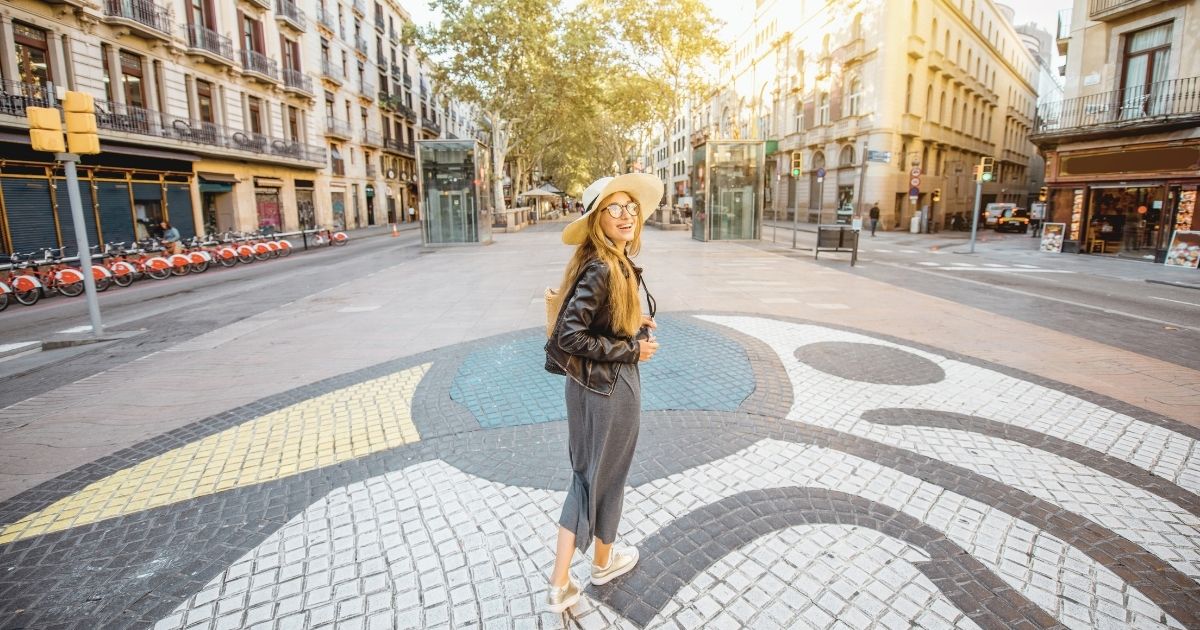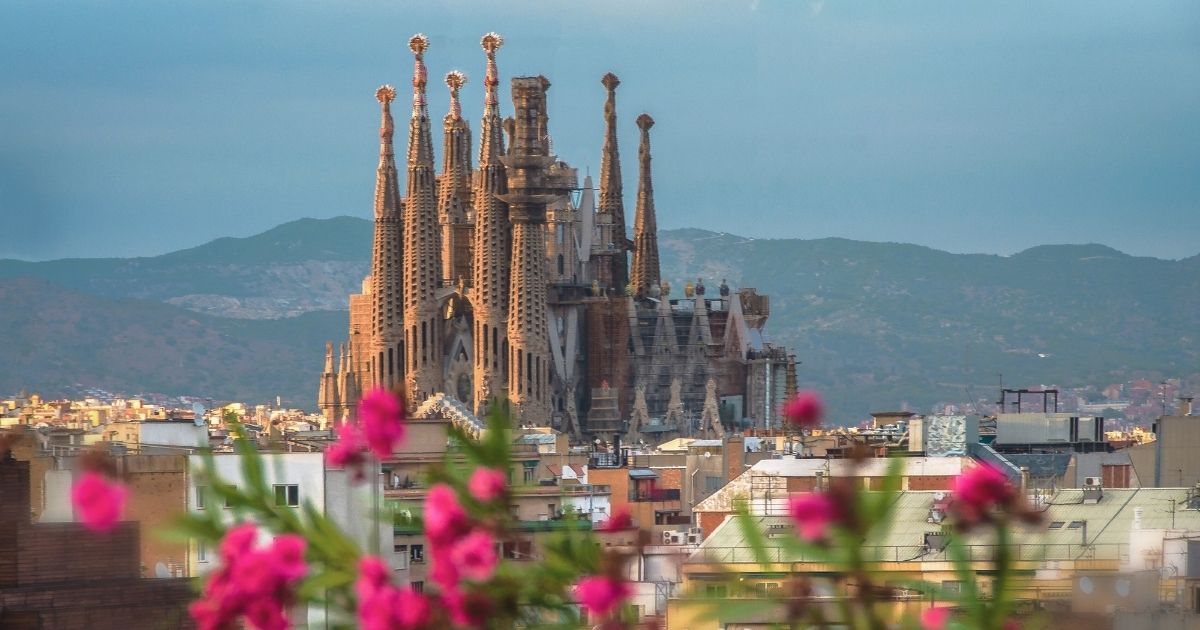The vibrant streets of Barcelona have recently become the stage for increasing demonstrations against tourism, with images of locals wielding water pistols and signs reading “Tourists Go Home” making international headlines. These Barcelona tourist protest actions may seem surprising for travelers who view the Catalan capital as one of Europe’s most welcoming destinations. However, the demonstrations reflect deep-seated concerns about how mass tourism is transforming the city’s landscape, economy, and livability for local residents.
Barcelona’s relationship with tourism has grown increasingly complex, evolving from initial enthusiasm to the current state of tension. Understanding the factors behind these protests is essential for responsible travelers who wish to experience this magnificent city while respecting its inhabitants and contributing positively to its sustainable future.
The housing crisis: at the heart of the protest movement
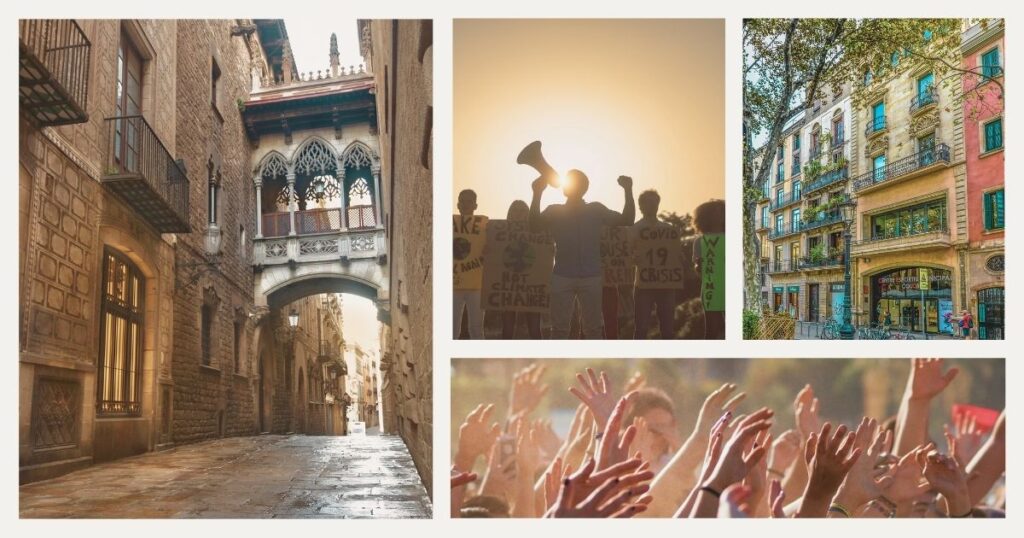
The most significant driver of the Barcelona tourist protest movement is the city’s severe housing crisis, which many locals directly attribute to overtourism and the proliferation of tourist accommodations.
Skyrocketing rental prices
Barcelona has experienced dramatic increases in housing costs over the past decade, making the city increasingly unaffordable for its residents. According to property data, rental prices have surged by approximately 68% over the last ten years, with an 18% increase in 2023-2024 alone. This rapid inflation has created an untenable situation for many locals, particularly younger residents and those with moderate incomes.
The average Barcelonian now spends a disproportionate percentage of their income on housing, creating financial strain and forcing many longtime residents to relocate to peripheral neighborhoods or leave the city entirely.
💡 Did you know? Barcelona received approximately 12 million tourists in 2023, with its population standing at just 1.7 million residents. This ratio of visitors to locals is among the highest in Europe and places enormous pressure on the city’s housing market and infrastructure.
Short-term rentals and housing supply
A primary target of the Barcelona tourist protest movement is the proliferation of short-term tourist apartments, which have removed thousands of units from the long-term rental market. Platforms facilitating holiday rentals have transformed residential buildings into de facto hotels, reducing housing availability for locals while simultaneously driving up remaining rental prices.
In response to this situation, Barcelona’s Mayor Jaume Collboni announced in June 2024 a plan to eliminate all tourist apartment licenses by 2028. This bold policy aims to return approximately 10,000 units to the residential market.
🌟 Pro tip: when visiting Barcelona, consider staying in licensed hotels instead of apartment rentals to minimize impact on the local housing market. Many hotels employ local staff and contribute more directly to the formal economy while creating less pressure on residential areas.
Gentrification and neighborhood transformation
Beyond pure economics, the Barcelona tourist protest movement responds to the cultural transformation of traditional neighborhoods. Historic districts like El Raval, Barceloneta, and the Gothic Quarter have experienced profound changes, with family businesses and local services gradually replaced by souvenir shops, international chain stores, and tourism-oriented establishments.
This transformation erodes community cohesion and changes the character of neighborhoods that once served local needs.
Beyond housing: other factors driving protests
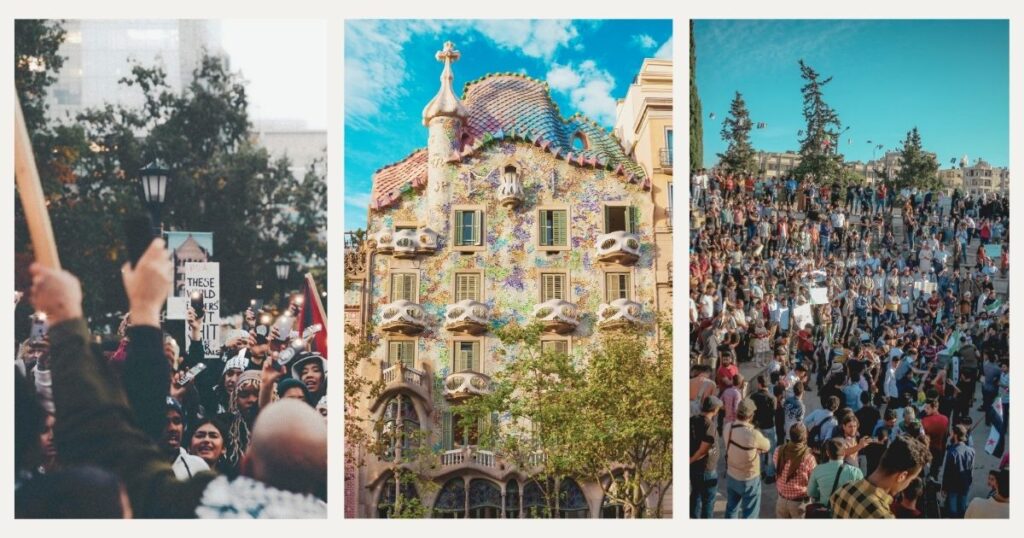
While the housing crisis remains central to the Barcelona tourist protest movement, several additional issues have contributed to local frustration with mass tourism.
Economic imbalance and labor concerns
Tourism represents a significant portion of Barcelona’s economy, but many residents argue that its benefits are not equitably distributed. The sector often generates precarious, seasonal employment with lower wages and fewer protections than other industries. This creates a paradoxical situation where the city becomes increasingly expensive while many tourism workers cannot afford to live there.
💡 Did you know? The Barcelona tourist protest movement isn’t just about rejecting visitors—many demonstrators specifically advocate for “tourism degrowth” and a more balanced approach that prioritizes quality experiences over quantity of arrivals.
Environmental and infrastructure pressure
The environmental impact of mass tourism has become another focal point for the Barcelona tourist protest movement. Cruise ships docking at the city’s port contribute significantly to air pollution, while the sheer volume of visitors strains water resources, waste management systems, and public transportation.
During peak season, Barcelona’s popular attractions become overwhelmingly crowded, diminishing the experience for both visitors and locals.
Cultural preservation concerns
Barcelona possesses a distinct Catalan cultural identity that many residents fear is being diluted by commercialization and mass tourism. As businesses increasingly cater to international visitors, authentic local traditions and cultural expressions can be marginalized or transformed into simplified performances for tourist consumption.
The preservation of authentic culture represents a significant motivation for many participants in the Barcelona tourist protest movement.
The July 2024 protests: a turning point
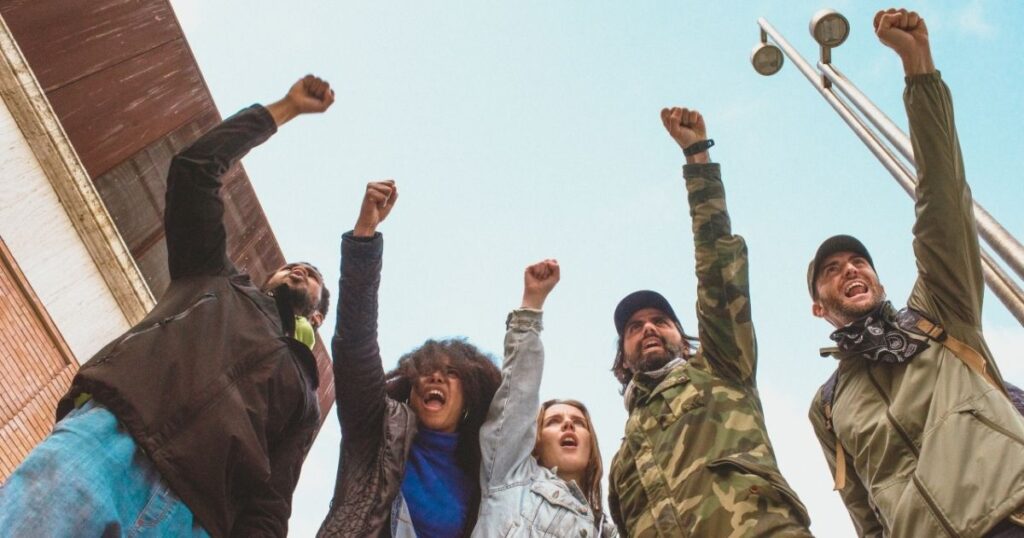
The Barcelona tourist protest actions that captured global media attention in July 2024 represented a culmination of years of growing frustration rather than a sudden shift in local sentiment.
Water pistol incident and media coverage
On July 6, 2024, approximately 3,000 protesters marched through Barcelona’s tourist areas, with some participants using water pistols to spray visitors seated at restaurant terraces. While this action represented a minority of demonstrators, it generated international headlines and sparked debate about appropriate forms of protest.
The demonstration was organized by the Assemblea de Barris pel Decreixement Turístic (Neighborhood Assembly for Tourism Degrowth), a coalition of over 100 local organizations.
🌟 Pro tip: when traveling in Barcelona during periods of potential protests, remain respectful if you encounter demonstrations. Remember that protesters are generally not targeting individual tourists personally but are expressing broader concerns about systemic issues affecting their city.
Government response and policy initiatives
Following the protests, Barcelona’s municipal government announced several measures aimed at managing tourism more effectively. These included an increased tourist tax, limitations on new hotel developments, and reinforced commitment to eliminating short-term rental licenses.
Similar movements across Spain and Europe
The Barcelona tourist protest actions exist within a broader context of anti-overtourism movements across Spain and other European destinations. Similar demonstrations have occurred in the Canary Islands, Mallorca, and Málaga, reflecting widespread concerns about tourism’s impact on housing affordability and quality of life.
Navigating Barcelona as a responsible traveler
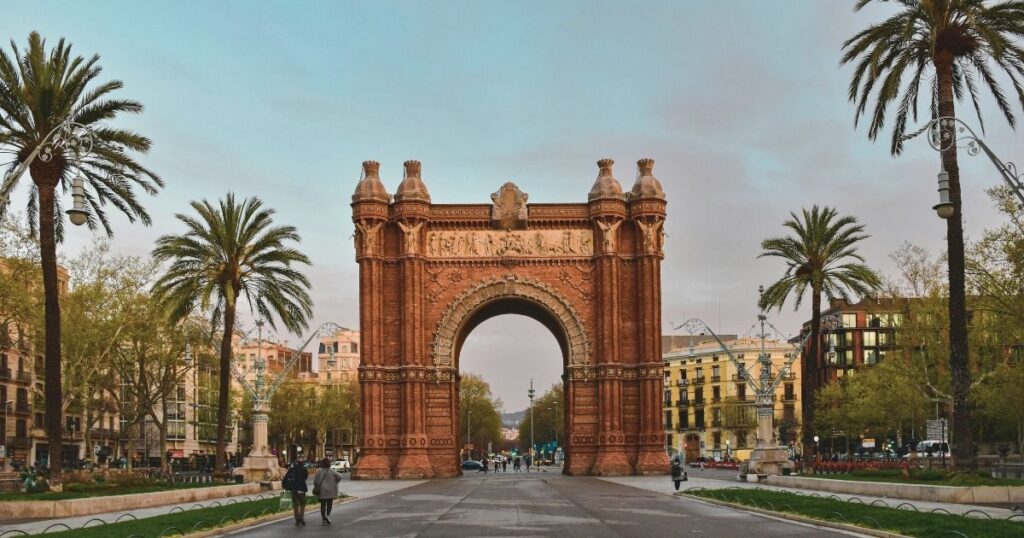
Despite the protests, Barcelona remains a welcoming destination for travelers who approach their visit with awareness and respect for local concerns. Responsible tourism practices can help mitigate negative impacts while still allowing visitors to experience the city’s remarkable offerings.
Choosing sustainable accommodations
Your accommodation choice represents one of the most significant decisions affecting your impact as a visitor to Barcelona. Licensed hotels, especially those with sustainability certifications, generally provide more economic benefit to the city while creating less pressure on the housing market than informal rentals.
If you prefer apartment-style accommodations, consider “aparthotels” or serviced apartments specifically zoned and licensed for tourist use. These options offer a more residential experience while complying with local regulations designed to protect housing availability.
Supporting local businesses
Where you choose to spend your money in Barcelona can significantly influence your impact on the local economy and community. Prioritize locally-owned businesses, especially those located outside the most heavily touristed areas. Family-run restaurants, independent shops, and neighborhood markets provide more authentic experiences while directing economic benefits to residents.
Be cautious about establishments that clearly cater exclusively to tourists, particularly along Las Ramblas and in parts of the Gothic Quarter.
💡 Did you know? Many Barcelona neighborhoods like Gràcia, Poblenou, and Sant Antoni offer authentic experiences with fewer crowds while helping distribute tourism’s economic benefits beyond the historic center.
Practicing cultural respect
Cultural respect involves both visible behaviors and deeper awareness of your role as a temporary visitor to someone else’s home. Basic courtesies like attempting a few phrases in Catalan or Spanish, dressing appropriately when visiting residential areas, and moderating noise levels in the evenings demonstrate consideration for local norms.
Beyond these basics, responsible travelers recognize that their presence has cumulative impacts. Avoid participating in activities that contribute to neighborhood disruption, such as “party tourism” centered on excessive drinking or disruptive behavior.
🌟 Pro tip: consider using connectivity solutions like Holafly’s travel data plans, which provide reliable internet access without international roaming fees. This allows you to research local businesses, translate signs and menus, and navigate without relying on expensive data plans.
The future of tourism in Barcelona
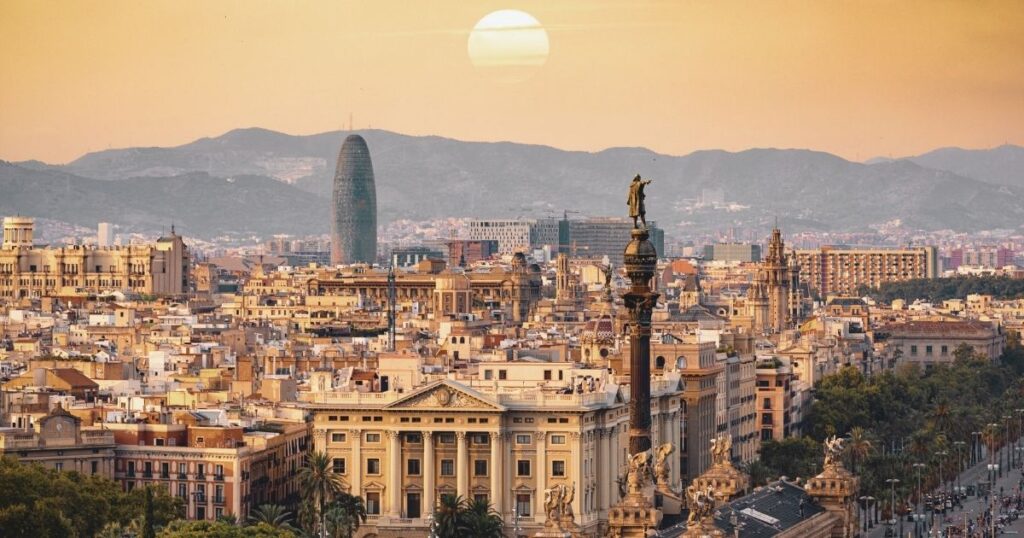
The Barcelona tourist protest movement has prompted important discussions about sustainable tourism development that will likely shape the city’s approach for years to come.
Policy developments and regulations
Barcelona’s current administration has signaled a willingness to implement stronger tourism management policies, including the phase-out of tourist apartments, increased taxation, and numerical limitations on certain types of visitors, particularly cruise ship passengers. These measures represent a significant shift from the promotion-focused approach that characterized earlier decades.
Industry adaptation and new models
The tourism industry in Barcelona is beginning to respond to changing circumstances by developing more sustainable and community-integrated offerings. Some tour companies now emphasize smaller groups, locally-beneficial experiences, and cultural exchange rather than passive sightseeing.
These emerging models suggest potential paths toward tourism that generate fewer negative externalities. Various stakeholders are exploring collaborative approaches that bring together residents, businesses, and visitors in defining a more balanced tourism ecosystem.
Finding balance: the community perspective
Ultimately, the future of tourism in Barcelona will depend on finding a balance between economic benefits, environmental sustainability, cultural preservation, and quality of life for residents. This balance requires ongoing dialogue between various stakeholders.
Most participants in the Barcelona tourist protest movement emphasize that they don’t object to tourism itself but rather to its current scale and impacts.
Final thoughts: tourism at a crossroads
The Barcelona tourist protest movement represents an important inflection point in one of the world’s most visited cities. The concerns raised by demonstrators highlight fundamental questions about how tourism functions in relation to local communities and who benefits from visitor economies.
Barcelona’s situation is far from unique—similar tensions are emerging in popular destinations worldwide as tourism reaches unprecedented levels. The policies and approaches developed in response to Barcelona’s challenges may offer valuable lessons for other cities.
For travelers, these developments invite reflection on our individual and collective impacts as visitors to other people’s homes. Responsible tourism isn’t about avoiding destinations experiencing challenges but rather about engaging thoughtfully with them.
Before planning your Barcelona trip, consider exploring Nomada’s comprehensive guide to sustainable travel in Spain. This resource offers valuable insights into experiencing Spanish destinations respectfully while minimizing negative impacts on local communities.
Ready to explore Barcelona responsibly? Let Nomada be your guide to creating an authentic Spanish experience that respects local communities while discovering the true magic of this remarkable Mediterranean city 🌍
Frequently asked questions about Barcelona tourist protests
The protests in Barcelona are focused on systemic issues rather than targeting individual visitors, and physical safety risks for tourists remain extremely low. While some demonstrators used water pistols during the July 2024 protest, there have been no reports of visitors being physically harmed. Most protest activities involve peaceful marches, signs, and symbolic actions rather than confrontational tactics.
Canceling your trip isn’t necessary, as most visitor experiences remain unaffected by protest activities. Tourism continues to function normally throughout the city, with attractions, restaurants, and accommodations operating as usual. By practicing responsible tourism and being respectful of local concerns, you can still enjoy Barcelona while minimizing potential tensions.
You can reduce your impact by staying in licensed accommodations rather than unregulated apartments, visiting during shoulder seasons rather than peak summer months, exploring neighborhoods beyond the most crowded tourist areas, and supporting locally-owned businesses. Additionally, using public transportation, respecting quiet hours in residential areas, and learning a few basic phrases in Catalan or Spanish demonstrates consideration for local communities.
Most protests occur in heavily touristed areas like Las Ramblas, the Gothic Quarter, and Barceloneta beach. These locations are chosen specifically to maximize visibility and communicate concerns to visitors and businesses. Even in these areas, demonstrations are generally scheduled, publicized events rather than spontaneous occurrences, making them relatively easy to anticipate and navigate around if desired.
Barcelona’s government has announced several policies to address resident concerns, including plans to eliminate tourist apartment licenses by 2028, increased tourist taxes, and limits on cruise ship arrivals. While protesters consider these measures insufficient, they represent a significant shift toward managing tourism’s impacts rather than simply promoting growth.


